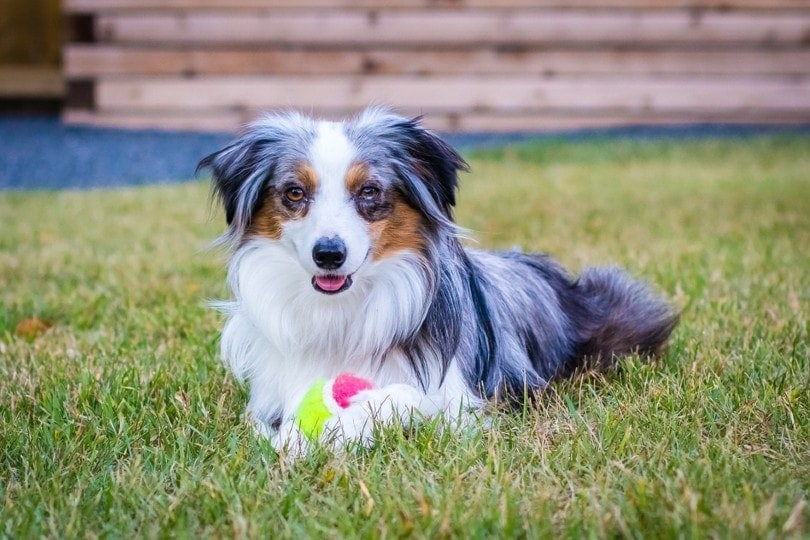My Dog Killed a Possum! 6 Tips on What to Do Next
Updated on
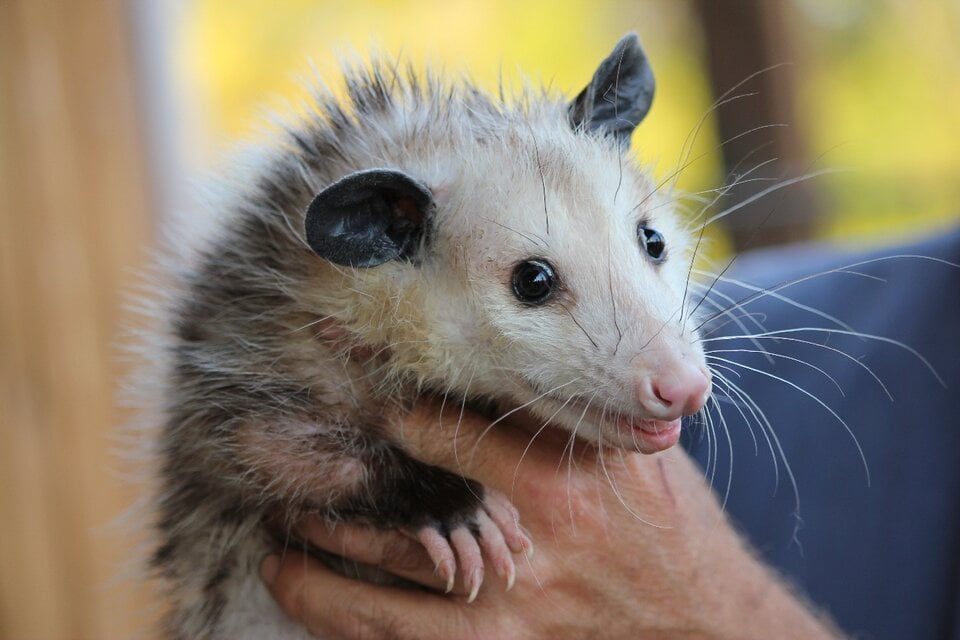
Opossums are North America’s only marsupial, meaning they carry their babies in a pouch like a kangaroo. Most people in the US colloquially call opossums “possums,” even though this is a misnomer and there is a separate species of animal that actually bears the possum name.
Either way, opossums are beneficial critters that eat ticks and other yucky things. However, many people consider opossums to be pests, often stealing outdoor pet food and breaking into chicken coops.
If you live somewhere where opossums are endemic, including the American South, the Eastern Seaboard, and the West Coast, then there’s a possibility that your dog will get ahold of one of these passive, slow-moving critters. Here’s what you should do if your dog kills an opossum.
The 6 Tips on What to Do When Your Dog Killed a Possum
1. Put Your Dog Away
If your dog caught and killed a possum, they’re likely amped up from the experience of catching prey. This means that your dog is likely to continue to stick their nose where it doesn’t belong while you try to move forward with the cleanup. Some dogs will even try to eat the possum if given the opportunity.
The more times your dog comes into contact with it, the greater the chance of your dog contracting an illness or parasite from the possum. Put your dog up somewhere that they’ll be secure while you deal with the possum.
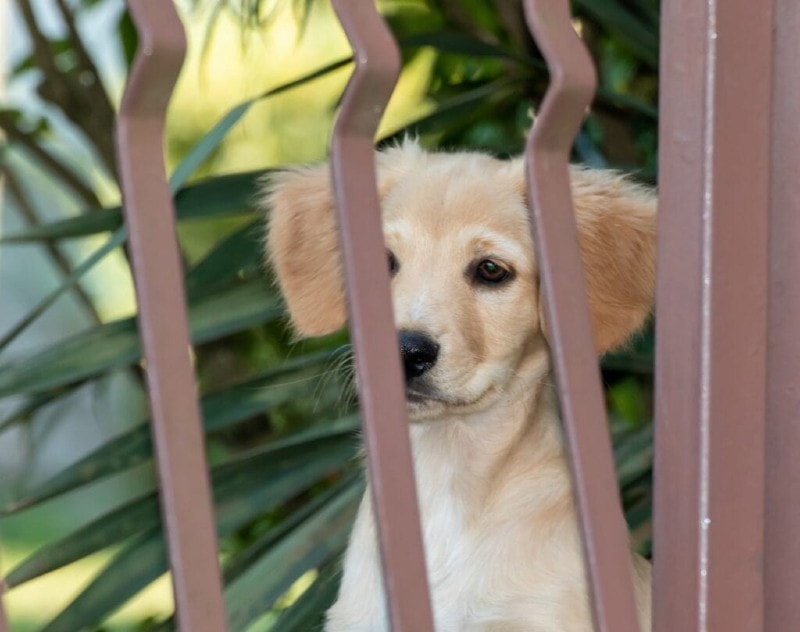
2. Glove Up
As a general rule, you shouldn’t handle any wild animals without gloves due to the risk of disease transmission. Put on gloves before handling the possum to decrease the risk of you getting anything directly from it.
If you don’t have gloves on hand, then you should come up with another way to move the possum. You can use a towel, blanket, shovel, or another item to deal with the possum without having to touch it. Anything that’s used to touch the possum should be thrown away or thoroughly disinfected after handling. You should always wash your hands after handling a wild animal, even if you wore gloves.
3. Make Sure It isn’t Playing Possum
Possums have a behavior that’s so closely associated with them that it’s literally called “playing possum.” When threatened, possums will enter a state in which their metabolic functions drop to the point that they appear to be dead. Their heart rate and breathing slow, and they will allow you to handle them, usually staying limp when you do so. It can be extremely difficult to determine if the possum is actually dead or not. This state usually lasts less than an hour but can last multiple hours. If it isn’t absolutely obvious that the possum is dead, then you might allow it to sit in a quiet spot outside for a few hours to see if it wanders off.
If you notice any wounds but the possum appears to be alive, you should contact a wildlife rehabber. At a minimum, they will be able to ensure the animal meets a humane end.
If your dog does successfully kill a possum, you will need to check to see if the possum is female. If it is, then she will have a pouch located on the abdomen. You should check this pouch for joeys, or baby opossums. If they are present and alive, you should place them in a warm, safe spot well out of the reach of your dog, don’t attempt to feed them, and contact a wildlife rehabber.
4. Dispose of the Possum
Once it’s absolutely clear that the opossum is dead, you will need to dispose of it in a place where your dog will not be able to get to it and nobody in the home will risk coming into contact with it. Ideally, you should wrap the possum in trash bags and place it in your outdoor trash or a dumpster.
Keep in mind that the possum will begin to smell after it’s been dead for a while, sometimes starting to stink within a few hours. If it’s summertime, the smell will happen much faster and be much worse. If this is a concern, you can reach out to your local animal control, game and fish or land management department, or wildlife rehabbers for options on getting rid of the possum more quickly.
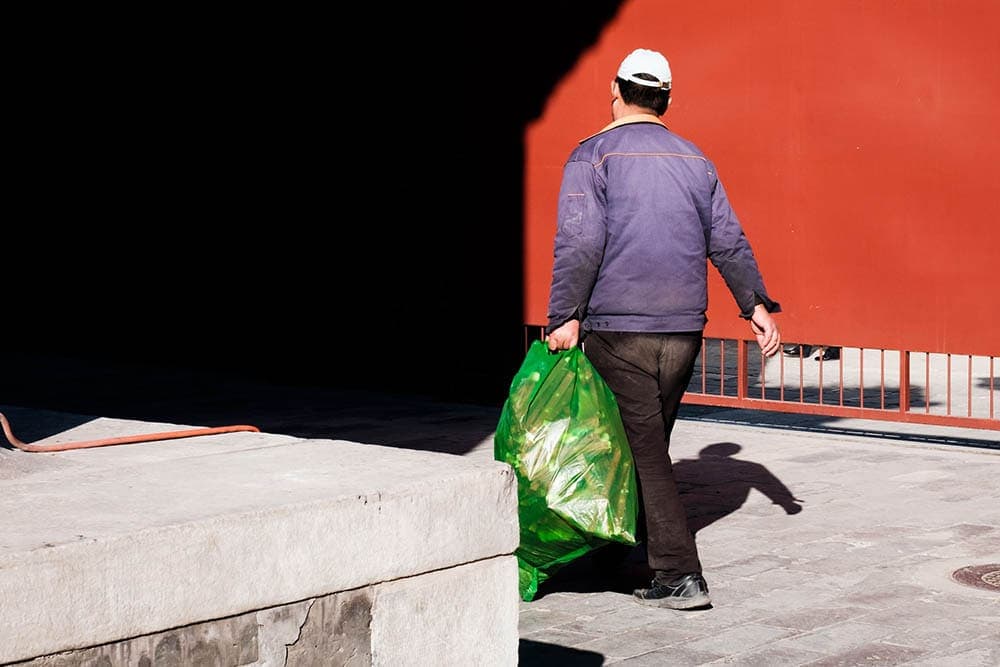
5. Check and Monitor Your Dog
Once the possum has been dealt with, make sure to check your dog over for any bites or scratches. Opossums are very passive animals that will usually avoid biting under most circumstances, but when threatened or harmed, they will bite and fight for their lives.
Even if your dog has minor scratches or bites, this should be noted. Any injuries should be evaluated, no matter how minor. Bites and scratches have a high risk of infection and should be seen by a vet.
If your dog doesn’t have any injuries, you’ll need to keep an eye on them for the next few days for notable changes or symptoms, like vomiting, diarrhea, lethargy, loss of appetite, and fatigue. In most cases, your dog won’t have any problems from having killed an opossum.
6. Take Your Dog to the Vet
This step is optional because it’s dependent on a few things. If your dog is injured at the time of the fight, they should be taken to a vet within 24 hours. If your dog develops any symptoms of illness, they should see a vet as soon as possible.
If your dog is not up to date on their rabies vaccine, you should call your vet—more on possums and rabies in a minute. Your vet will likely want you to bring your dog in for a booster, but in some cases, they may advise that your dog’s last booster is still working and isn’t a concern currently.
As always, any questions, concerns, or problems should be directed to a veterinarian.
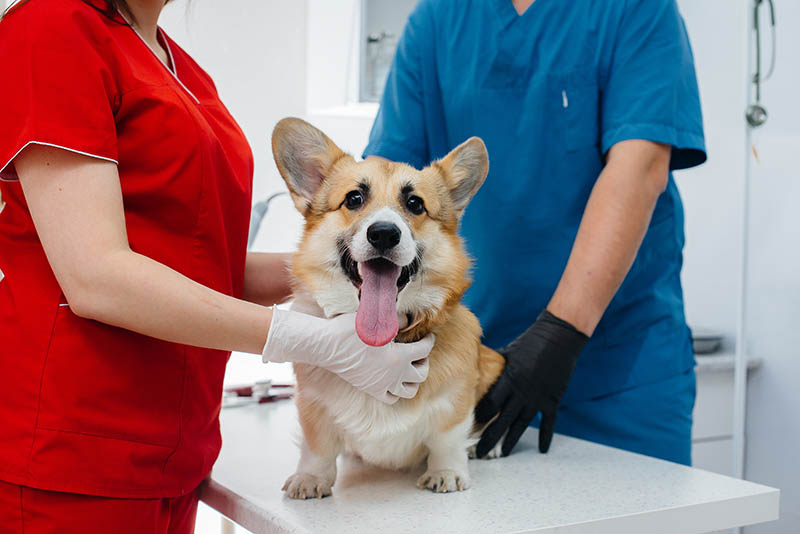
The 5 Risks Associated with Possums
1. Leptospirosis
Leptospirosis, also known just as Lepto, is a bacterial infection that is zoonotic, meaning it can be passed from animals to people. Your dog can contract Leptospirosis from the possum, which can make them sick, but they are also capable of then infecting you and the other people and animals in the home with it. If left untreated, Leptospirosis can cause liver and kidney failure, meningitis, and death.
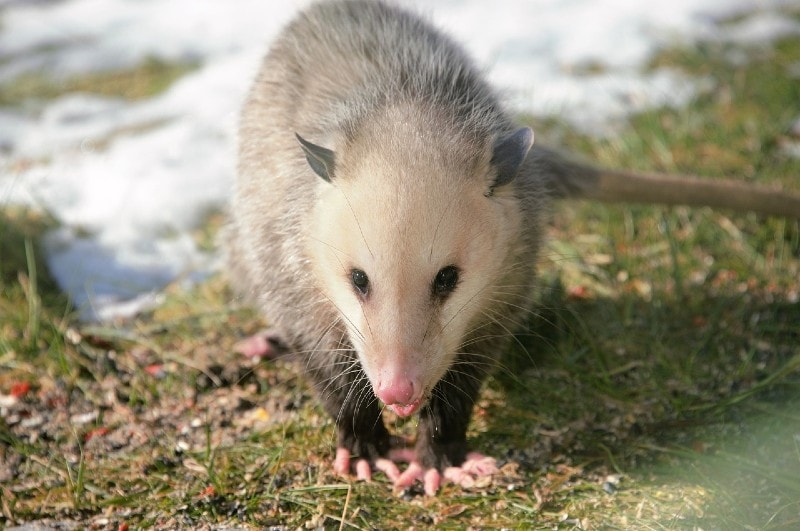
2. Toxoplasmosis
Toxoplasmosis is a zoonotic parasitic infection that can make your dog sick. In people, it’s most commonly associated with food poisoning. Toxoplasmosis poses the greatest risks to people who are immunocompromised, pregnant women, and fetuses. It can be passed to the fetus during a pregnancy, which can cause immediate problems at birth or later on down the road.
3. Trichomoniasis
This parasitic infection is zoonotic, but not overly common in dogs. They can catch it from consuming raw meat, though, including a dead possum. Both people and animals can experience symptoms like diarrhea, bloody or mucusy diarrhea, anal swelling, and even rectal prolapse. It’s not commonly diagnosed in dogs, or any species other than humans for that matter.
4. Coccidia
Coccidia is a parasite that can lead to severe diarrhea and abdominal pain. Infections can be extremely difficult to manage and can lead to damage to the digestive tract in the process. Humans and animals can contract this infection, and while it is most commonly passed through dirty water, it can also come from consuming dead animals or handling their feces.
5. Rabies
Rabies is a big concern with a huge number of animals in the US, with bats, skunks, foxes, and raccoons being the top vectors of this disease. Possums have a low body temperature that makes them poor hosts of this virus, so the risk of rabies transmission from possums is exceptionally low, but it isn’t impossible.
Rabies has an almost 100% mortality rate if not caught before symptoms start. There is no treatment for pets that contract rabies and the treatment options for humans are typically ineffective. Keeping your dog up to date on their rabies vaccine through their vet is the best thing you can do to protect them and yourself from rabies.
Conclusion
Opossums are a beneficial part of their ecosystems, but it’s not uncommon for them to cross paths with dogs. Between a dog and a possum, the dog typically wins. Your dog is not overly likely to contract any illnesses from killing a possum, but the risks go up considerably if your dog consumes the possum or has extended contact with the animal.
Always follow all precautions when handling wildlife, even when dead, and contact professionals if you aren’t sure how to handle a situation.





